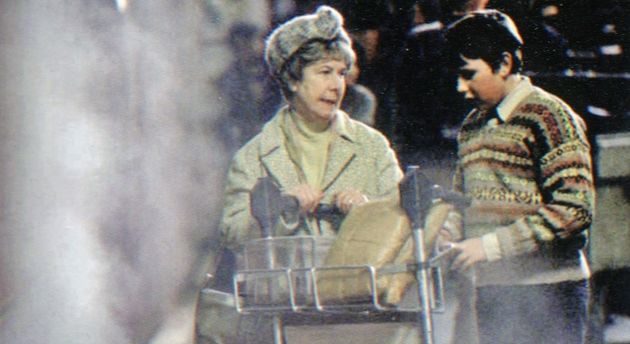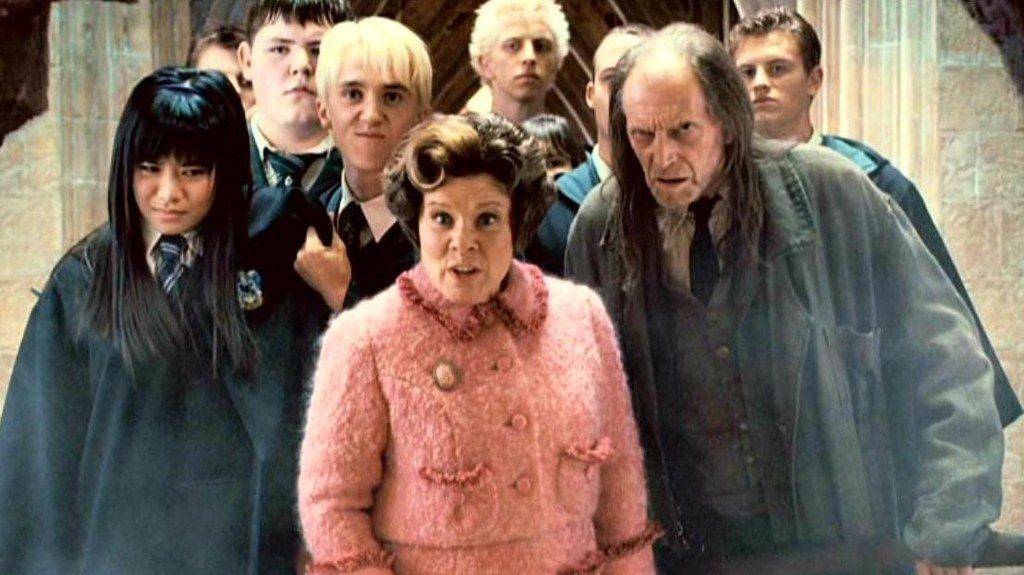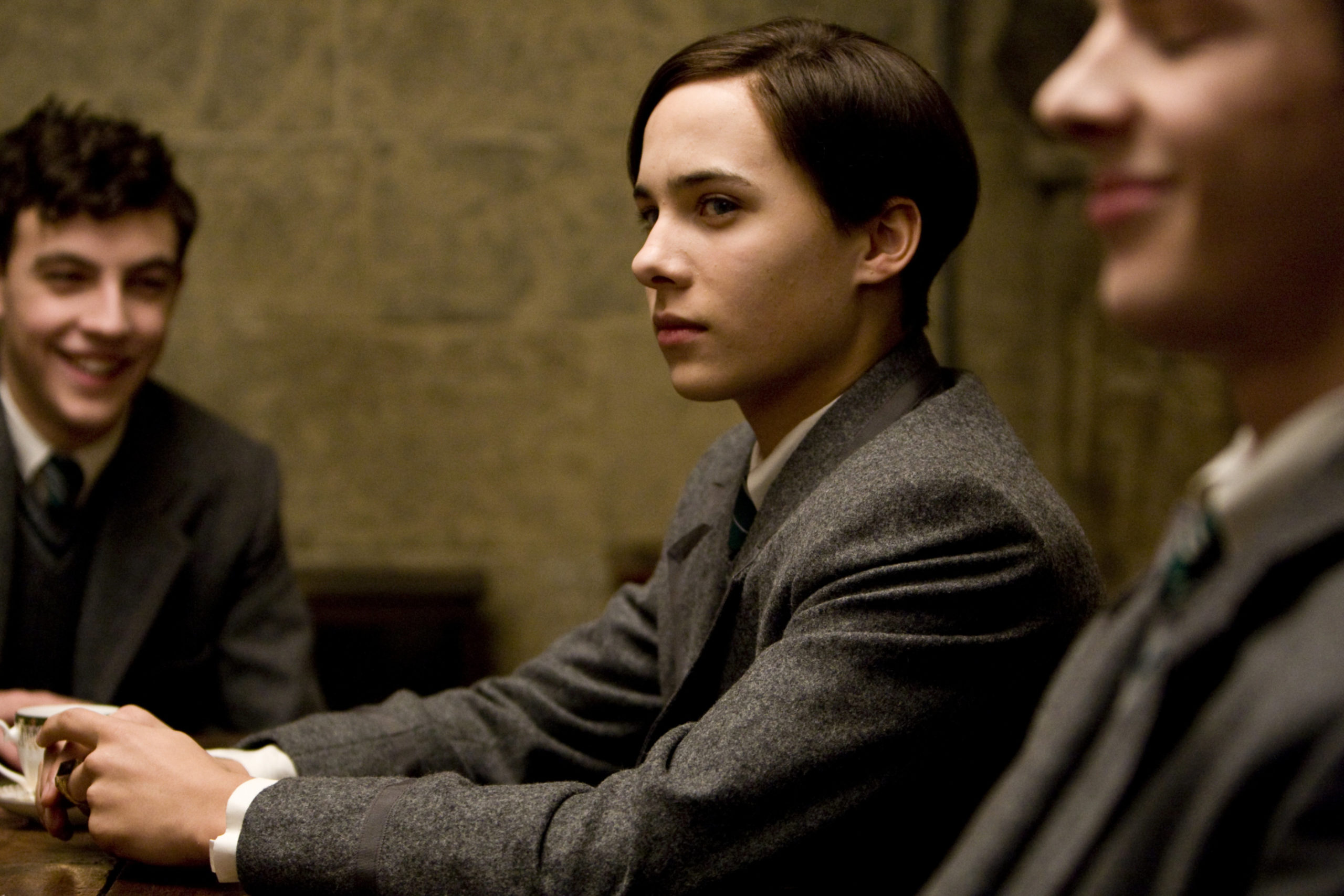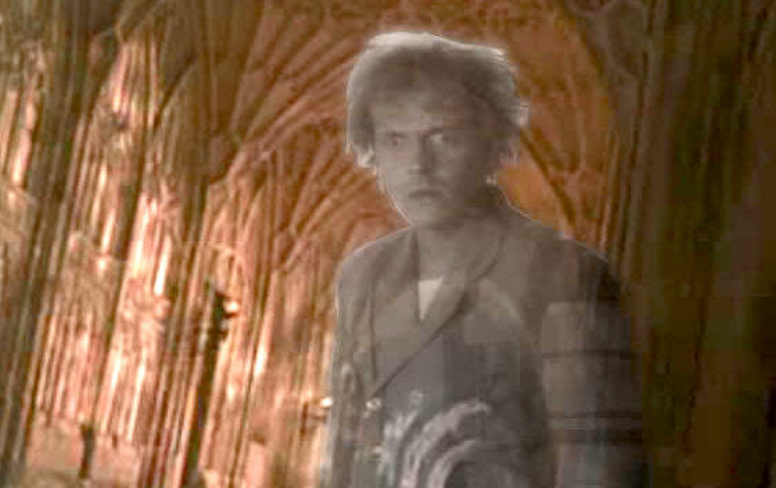Characters We Missed (or Didn’t Miss) in the Harry Potter Movies
November 18, 2019—In both Episodes 7 and 8, Victoria and I discussed characters who were cut from the Harry Potter books by filmmakers and their impacts on the story. Of course, as we pointed out, adapting a story as long and complex as the Harry Potter series onto the big screen is not a straightforward undertaking. Sacrifices must be made.
But in a perfect cinematic world, wherein films have unlimited budgets and audiences have endless patience, here are some characters we would have liked to have seen. They all added something to the Harry Potter universe (whether positively or negatively), something that we missed in their absence.
Peeves
I’ll keep my comments on Peeves, Hogwarts’s resident poltergeist, brief, since we already canvassed his role in the Harry Potter world during our Halloween-themed Episode 7. I will add, though, that while he’s not my favorite character, I do appreciate that he is probably the one true chaotic neutral in the Harry Potter universe.
He dislikes Voldemort and the Death Eaters, and he likes the Weasley Twins, but on the whole he seems marvelously unencumbered by morals or loyalties. His lack of social constraints allows him to comment objectively and rather perceptively on what he sees, cutting to the heart of matters that other characters tiptoe around or don’t want to acknowledge. No such disinterested eye exists in the movieverse.
Ludo Bagman
We’ve already canvassed Ludo Bagman’s role in the Harry Potter universe as well in Episode 8, which celebrated the beginning of the Hogwarts Quidditch season. Where we really missed Bagman was in the portrayal of Fred and George’s gambling. The Twins spend much of the Goblet of Fire movie as bookies for the Triwizard Tournament, and this is treated as light-hearted comic relief. The brief glimpses of them calling out odds and nudging each other seem to be designed to give them something to do in lieu of the character development we witness throughout the course of the book.
In the books, Bagman’s character allows the issue to be dealt with in a more cautionary way. Fred and George bet the farm, so to speak, and get burnt by an unscrupulous bookie. They get in over their heads trying to fix things, and they grow as people and in their relationship with each other as a result of the lessons they learn through the experience.
Neville’s family

Not all characters in the Harry Potter books were translated accurately onto the screen, but the filmmakers pretty much nailed Neville. However, in the movies we don’t see why he is the way he is. (Check out Episode 9, coming out this Wednesday, to hear our in-depth analysis of his character and for more on the family members that shape him.)
Frank and Alice Longbottom: Neville spends his childhood constantly exposed to his parents’ clinical insanity. He witnesses on a regular basis the two people who should love him unconditionally but who can’t recognize him or communicate with him.
Augusta Longbottom: Compounding this is his grandmother’s overbearing and critical style of childrearing. She wants Neville to be exactly like her son Frank in all ways, and she withholds love and support when he displays his own personality traits or interests. Furthermore, his extended family is casually abusive throughout his early childhood in their quest to confirm whether he has magic.
This collective dysfunction in the Longbottom family explains so much of Neville’s need for approval, his timidity, and his lack of confidence at the beginning of the series. His ability to overcome these obstacles and become a leader in his own right is even more admirable in light of these circumstances.
Marietta Edgecombe
Harry’s love life in Order of the Phoenix is dramatic, short, and a bit messed up. For a number of reasons, his romance with his crush, Cho Chang, is doomed to fail from the beginning. But I think that the end of their relationship in the movie does a grave disservice to both Harry and Cho as characters.
In the movie version of events, Harry ices Cho out after Cho tells Umbridge about Dumbledore’s Army. He later learns that her confession was under the influence of Truth Potion, and thus not her fault at all. It would be incredibly logical at that point for him to rectify the misunderstanding with her, but he makes no effort to mend fences or even apologize for not hearing her out earlier. The fact that it’s never addressed again has always seemed to me like a loose end.

In the books, the end of their relationship makes much more sense, and it has a name: Marietta Edgecombe. One of Cho’s closest friends, Marietta tags along with her and joins the DA even though she doesn’t really seem on board with what the group is doing. Later, under pressure from her Ministry-employed mother, Marietta tells Umbridge about the DA of her own volition.
Harry, furious over the betrayal, confronts Cho about it, but Cho stands by her friend. Though she doesn’t agree with Marietta’s actions, she contextualizes them and defends Marietta against Harry’s accusations. Harry doesn’t see the shades of grey in the matter that Cho does, and the relationship, as Harry would later say, “[s]ort of fell apart.”
Winky
House-elves are admittedly strange creatures in the Harry Potter universe, but the movies only show them in two extremes: Dobby—excitable, misguided, and devoted—and Kreacher—dour, cruel, and pitiful. This portrayal fosters the idea that House-Elves can only have intensely eccentric personalities, that there are no “normal” beings among the species.
But the books depict many other House-Elves, most notably Winky, Dobby’s friend and reluctant co-worker at Hogwarts. While she is also rather dramatic at times, she serves to show us that House-Elves have “human” problems and reactions too. She (platonically) loves a deeply flawed man; she becomes distraught over losing her job; she tries to drown her problems in alcohol; she gets frustrated when her friends don’t understand or support her. She’s not the most likeable of characters, but she’s probably the most relatable of the House-Elves. Where Dobby and Kreacher are caricatures in many ways, Winky is just an imperfect person.
The Gaunts
Like Neville, Voldemort can only be truly understood through the lens of his family. But as the movies don’t delve into Voldemort’s history, we have to turn to the books for a clear picture. The Gaunts are Voldemort’s maternal relatives, Pureblooded descendants of Salazar Slytherin himself. And while on paper that sounds impressive, the reality is much different:
- They are woefully inbred, more than a little insane, and living in squalor by the time of Voldemort’s birth. They are physically deformed, his grandfather and uncle are violent Muggle-haters and misogynists, and his mother’s magic is so weak as to be almost non-existent.
- His mother, Merope, drugs his father, a handsome Muggle, with a Love Potion and rapes him over an extended period. Thus Voldemort is conceived.
- Once his mother stops feeding his father a Love Potion, he leaves his pregnant wife and seems to try to forget the whole thing ever happened.
- Merope, in utter despair after being abandoned by her “love,” loses the will to live and wastes away, living only long enough to give birth to her son and hand him over to a Muggle orphanage.

That’s a lot of baggage, both genetic and psychological, which adds up to one sociopath in this case. Voldemort gets his looks, charm and hatred of Muggles from his absentee father; his tendency toward violence and insanity from his maternal family; and his incredible magical gifts from the Slytherin line—a dangerous combination, to be sure.

